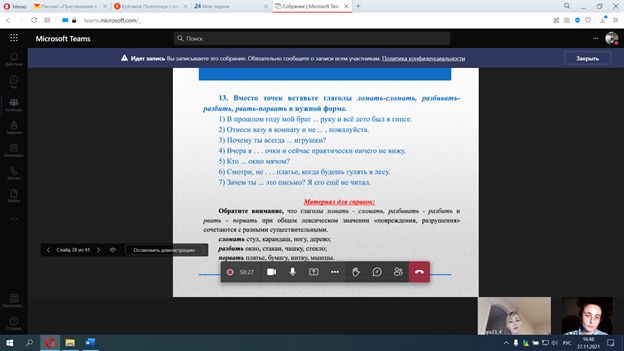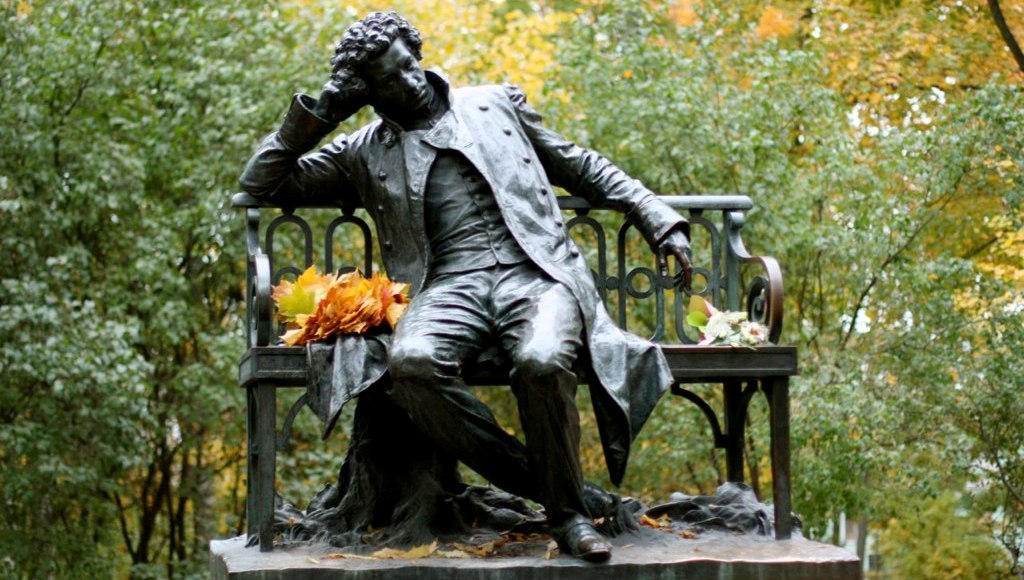Test instructions
Dear participants of the course!
In order to determine the level and level of formation, on December 13 and December 14, 2021, foreign citizens and students with communicative competence in Russian as a foreign language (Level B1) will be tested in accordance with the requirements approved by the Russian Ministry of Education and Science. Testing is carried out by the Russian State Pedagogical University. AI Herzen ”on 05.04.2013. № Within the framework of Part 1 of Article 93 of the Federal Law 44-FZ “I.Ya. Yakovlev Chuvash State Pedagogical University ”25.11.2021 № 135 On the provision of services for testing Russian as a foreign language.
Test addresses:
Kyrgyz Republic, Osh, st. Mamytova, 83 A
Kyrgyz Republic, Osh, st. Lenin, 331
Test instructions
On November 30, 2021, the next lesson on the course "Writing and reading in Russian" was held. It was dedicated to "Cities. Center. Problems of modern cities. City and country life." Phonetic work consists of training to pronounce hard and soft l sounds separately, in the composition of sound combinations, in words and phrases. Phonetic exercises are also used to distinguish between these sounds. The grammatical material includes the study of verbs without prefixes of movement, among which there are two main groups - single-directional and multi-directional verbs. Teachers introduced the conditions of use of these verbs, and then developed the use of verbs in constructions on the example of other exercises, as well as repeated the forms of hiring and prepositions. Some of the exercises were communicative in nature, involving the creation of dialogues using verbs of movement and the creation of messages based on patterns. Lexical material and listening tasks on the topic are provided on the Moodle educational platform.
On November 27, students of the course "Learning to understand Russian literature and culture" got acquainted with the text of the story "The Rooster and the Towel" (1926) by MA Bulgakov, which reflects the Russian literature of the twentieth century. After reading the work, students answered questions about its content, discussed the meaning of the title, understood the position of the author, performed a series of lexical and grammatical exercises (verb forms, verbs with and without prefixes, meanings of prefixes, introductions). Mikhail Bulgakov's story dedicated to the daily heroism of the medical profession is of constant significance and relevant at all times. Mastering the material of the lesson will be continued in the homework, which suggests to write your own text on the topic "Medical care in my country."

The fifth lesson on the topic "Leisure, recreation, entertainment" on the course "Speak and write in Russian" was conducted using the educational platform https://moodle.chgpu.edu.ru. At the beginning of the lesson, the traditional phonetic activity included articulation exercises in the pronunciation of whistles and was presented in the form of lecture material using audio recordings.
Подробнее: Lesson 5 "We write and read in Russian"
On November 20, another lesson was held as part of the "Learning to Understand Russian Literature and Culture" course based on Russian folk tales and literary works. Students got acquainted with the story "Order" by AP Chekhov, answered questions on its content, understood the position of the author, performed a number of lexical and grammatical tasks (pairs of verbs, antonyms, prepositions, statement formulas, consent and rejection). . After studying the literary work, the audience turned to the culture of hospitality and its traditions of different nationalities.

Today Yurkina T.N. and Gavrilova IV The fourth lesson of the course "Speaking and writing in Russian" is "Lifestyle. The agenda. The friends".
Phonetic practice is the practice of pronouncing whistle sounds and C sounds in combinations, words, constructions, and language distortions, as well as in short songs. Grammar exercises focus on creating and using possessive pronouns.
Students got acquainted with the agenda, thematic words, watched the educational cartoon "Far Away", as well as developed skills in the use of dative moments in personal and personal constructions. In addition, they studied complex sentences with attributive clauses.









